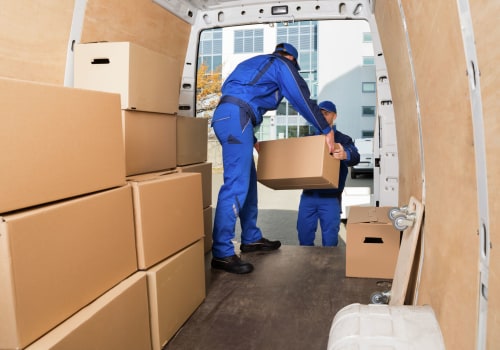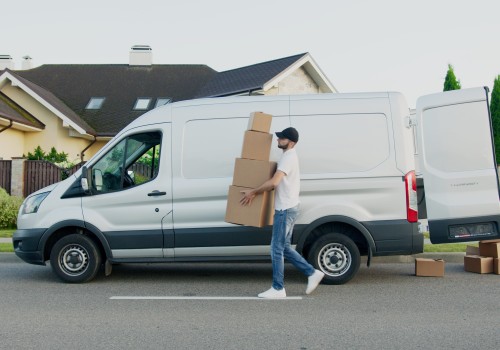Are you planning an interstate or cross-country move? If so, it's important to consider the additional fees that may come with distance and travel time. These extra costs can add up quickly and significantly impact your relocation budget. In this guide, we'll break down everything you need to know about these fees and how to budget for them. Whether you're moving for a new job, for personal reasons, or simply seeking a change of scenery, relocating to a new state or across the country can be an exciting yet daunting endeavor. The thought of packing up your life and starting fresh in a new location can bring a mix of emotions, but one thing you definitely don't want to overlook is the cost. While many people focus on the obvious expenses like hiring a moving company or renting a truck, there are additional fees that often get overlooked.
These fees can include things like fuel costs, tolls, and even overnight accommodations for long-distance moves. In this article, we'll dive into the various factors that can affect the additional fees for distance and travel time during an interstate or cross-country move. By understanding these costs and how to budget for them, you can ensure a smooth and stress-free relocation experience. So let's get started!Moving to a new state or across the country can be an exciting but daunting experience. Not only do you have to pack up all your belongings, but you also have to consider the costs involved in a long distance move. The most obvious cost associated with a long distance move is the transportation of your belongings.
This includes the cost of hiring a moving truck or hiring a professional moving company to transport your items. However, there are other fees that may not be as apparent but can add up quickly. One of these fees is the cost of packing materials. While it may seem like a small expense, the cost of boxes, tape, and other packing supplies can quickly add up, especially for larger moves. It's important to factor in these costs when budgeting for your long distance move. Another potential fee is for loading and unloading services.
If you are unable to do the heavy lifting yourself, you may need to hire movers to help load and unload your items from the moving truck. This can be an additional expense that you may not have considered. If your move requires temporary storage, you may also have to pay for storage fees. This is common for long distance moves, as it may take some time for your belongings to arrive at your new location. Be sure to inquire about storage fees when getting quotes from moving companies. Additionally, there may be extra services that you need to pay for during your long distance move.
This could include disassembly and reassembly of furniture, appliance servicing, and specialty packing for fragile items. These services may come at an additional cost, so be sure to discuss them with your moving company beforehand. In conclusion, while the transportation of your belongings is the most obvious cost associated with a long distance move, there are other fees that you should be aware of. These include packing materials, loading and unloading services, storage fees, and additional services. By factoring in these costs when planning your interstate or cross-country relocation, you can ensure that your move goes smoothly without any unexpected expenses.
Packing Materials
When planning a long distance move, it's important to factor in the cost of packing materials.This includes boxes, tape, bubble wrap, and other supplies needed to protect your belongings during transit. Be sure to get quotes from different moving companies to compare prices and see if they offer any discounts on packing materials.
Storage Fees
If your move requires temporary storage, you will have to pay for the additional time and space. Some moving companies offer storage services as part of their packages, while others may charge extra. Be sure to discuss your storage needs with the moving company and get a clear understanding of any associated fees.Loading and Unloading Services
Loading and unloading services are typically included in the overall price of a long distance move, but some moving companies may charge extra for these services if they have to carry your belongings up or down stairs or if there are long distances between the moving truck and your home.Make sure to ask about these fees when getting quotes from different companies.
Extra Services
When planning a long distance move, it's important to consider the additional services that you may need from your moving company. These extra services can add up quickly, so it's crucial to discuss them beforehand and get a detailed breakdown of the costs. One common extra service is disassembly and reassembly of furniture. If you have large or bulky furniture that cannot fit through doorways or in elevators, your movers may need to take it apart and put it back together at your new location. This requires additional time and labor, which will be reflected in your final cost. Appliance servicing is another important extra service to consider.If you are moving large appliances such as refrigerators, washers, or dryers, your movers may need to disconnect and reconnect them at your new home. This requires specialized knowledge and equipment, so be sure to discuss this with your moving company beforehand. If you have fragile or valuable items that require special care, you may need to pay for specialty packing services. This includes items such as antiques, artwork, or delicate electronics. Your movers will use specific packing materials and techniques to ensure these items are safely transported to your new home. It's important to communicate your specific needs with your moving company so they can provide an accurate estimate for these extra services.
Be sure to get a detailed breakdown of the costs so you can budget accordingly for your long distance move. In conclusion, when planning an interstate or cross-country move, it's important to consider all the additional fees for distance and travel time that may not be immediately apparent. Be sure to get quotes from multiple moving companies and ask about any potential extra costs. By doing so, you can ensure that you are getting the best deal for your long distance move.







